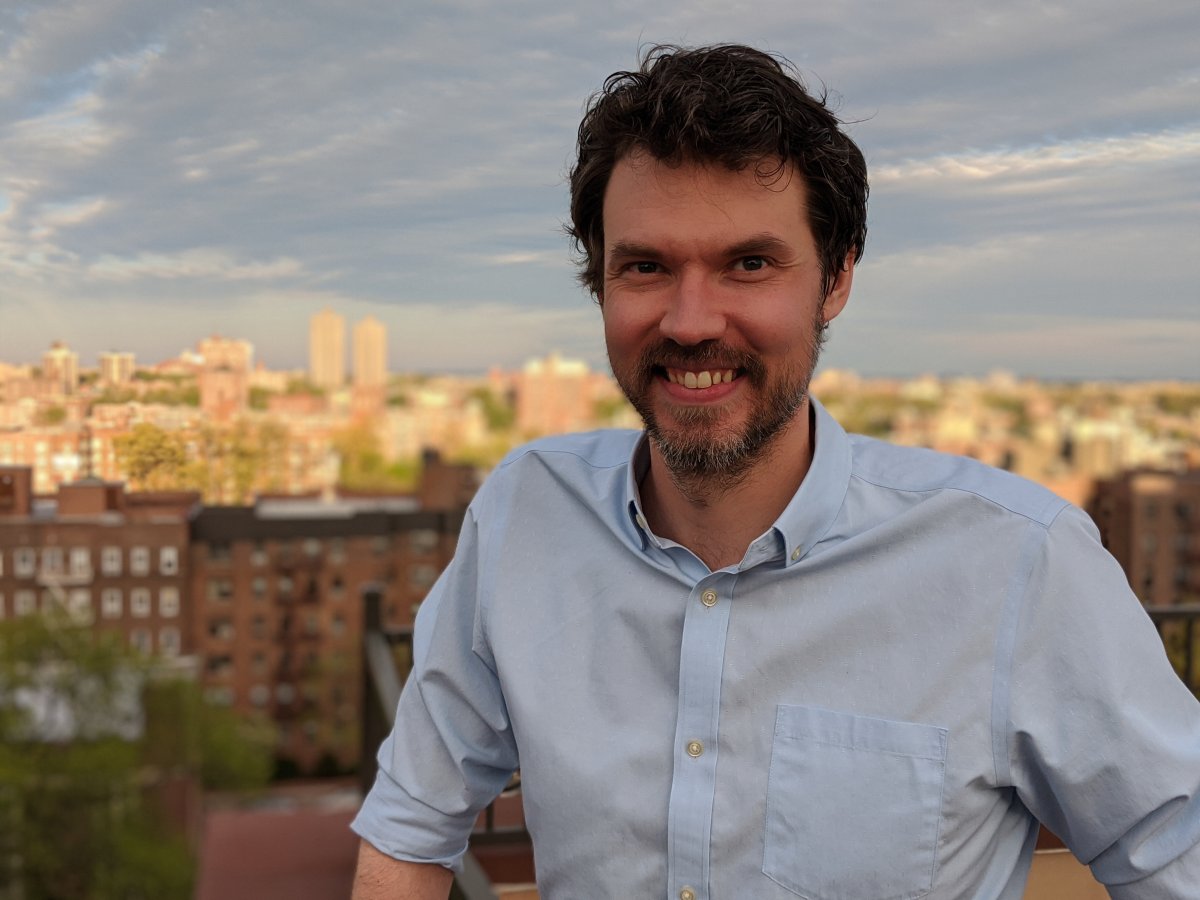Plasek Awarded Tomash Fellowship
Columbia University History Department ABD Aaron Plasek is the 2020-2021 Adelle and Erwin Tomash Fellow at CBI. At Drake University, Plasek earned a BS in Physics and Astronomy, prior to completing a Master’s of Fine Arts at the Art Institute of Chicago and a MA in Humanities and Social Thought at New York University. In 2015, he began pursuing his Ph.D. at Columbia University, working with standout historians Columbia’s Matthew Jones (primary) and Richard John, and University of Pennsylvania’s Stephanie Dick. Prior to Columbia, Plasek taught courses at the Art Institute of Chicago, Colorado State University, and Benedictine University. His doctoral research has been supported by prestigious fellowships and grants, locally and nationally, including Columbia’s Richard Hofstadter Fellowship and by the National Science Foundation.
Plasek’s rich and diverse experience in the sciences, humanities, and arts are ideal for his doctoral project entitled “Genealogies of Machine Learning, 1948-2010.” Increasingly, law enforcement and criminal justice, medical diagnostics and imaging, credit reporting, and many other institutions, entities, and leaders in society rely on machine learning for decisions that deeply impact peoples’ lives. Plasek’s path-breaking dissertation focuses on the “why” it became “thinkable” that Machine Learning (ML) was perceived a “reasonable,” acceptable, and often superior epistemic strategy and/or practice “for adjudicating social questions.” His wide-ranging dissertation traces the institutions (governments, companies, universities, nonprofits, federal funding agencies, etc.), scientists, and decision makers applying ML/AI over roughly six decades from shortly after the advent of the digital computer in late 1940s through the first decade of the new millennium.
Plasek plans to visit CBI to use our extensive materials related to the history of artificial intelligence and machine learning, and their governmental, policy, social, and cultural contexts. This includes materials generated from CBI’s DARPA IPTO history project that were compiled by Arthur Norberg and William Aspray, as well as our Association for Computing Machinery Organizational Records, our American Federation of Information Processing Society Records, our Michael S. Mahoney Papers, our Computer Professionals for Social Responsibility Records, and many more. Back in 2016 he published a deeply insightful Think Piece in IEEE Annals of the History of Computing, entitled “On the Cruelty of Really Writing a History of Machine Learning” drawn from his early doctoral research.
Jeffrey R. Yost
June 2020
